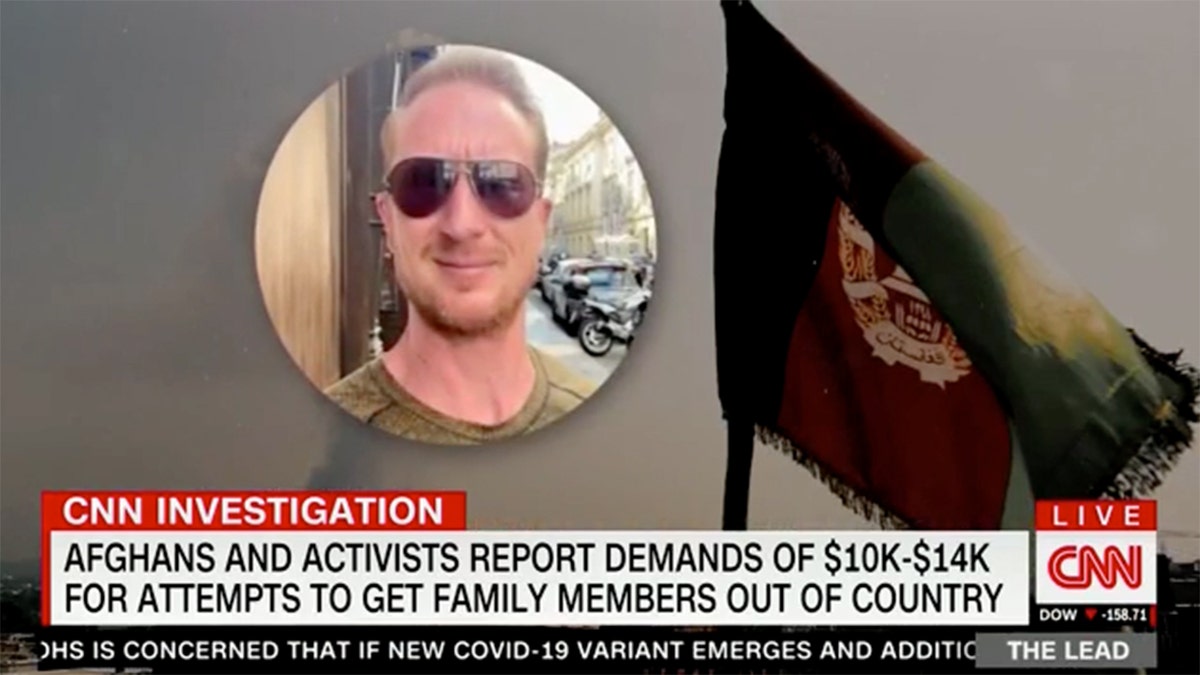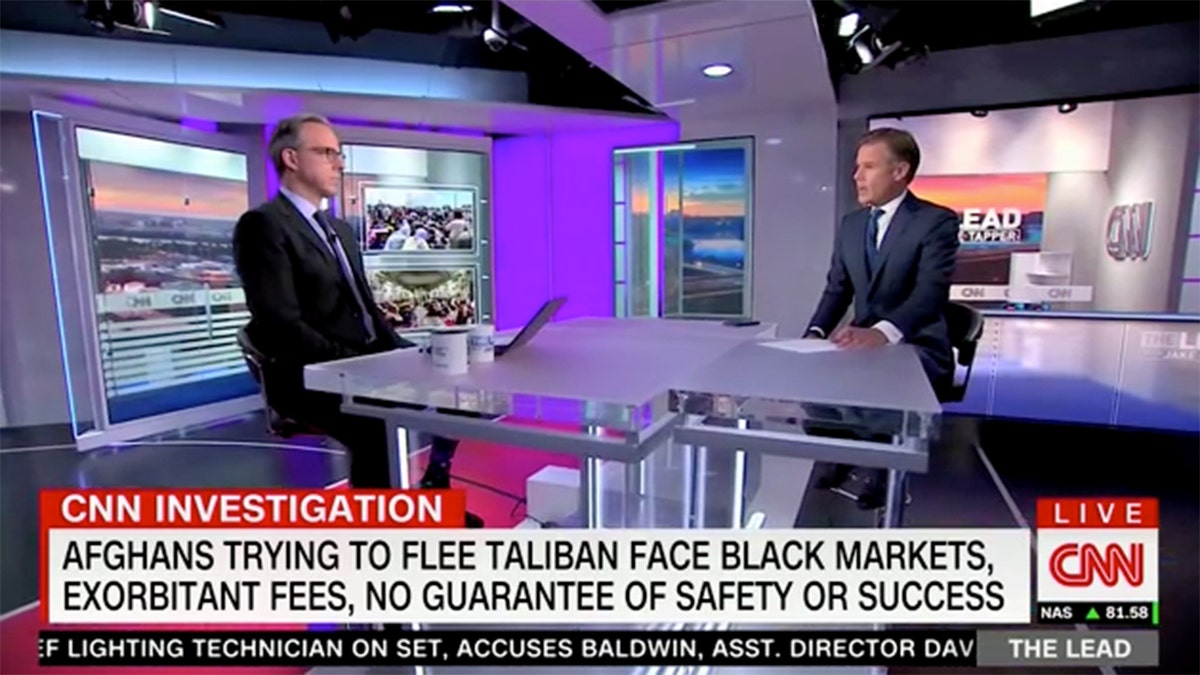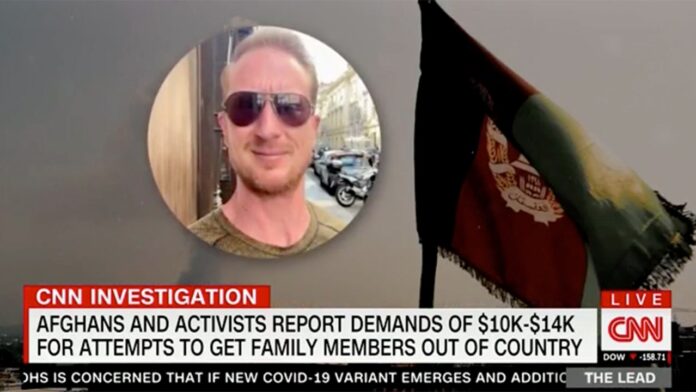U.S. Navy veteran Zachary Young scored another victory on Friday ahead of his high-profile defamation trial against CNN, as a Florida judge ruled that the network’s expert witness cannot testify that he suffered zero lost income or profits as a result of the segment at the center of the case.
Young alleges that CNN smeared him by implying he illegally profited via a “black market” when helping people flee Afghanistan during the Biden administration’s military withdrawal from the country in 2021. The veteran believes CNN “destroyed his reputation and business” during a segment that year on Jake Tapper’s program “The Lead,” which was shared on social media and also repackaged for CNN’s website.
Young’s legal team argued that Brian Buss, who CNN wanted to use as an expert, should not be able to testify “on the basis of his qualifications and methodology and that his opinion is cumulative of another retained expert” of CNN, according to a court filing obtained by Fox News Digital.
U.S. NAVY VETERAN SUING CNN LANDS KEY LEGAL VICTORIES AHEAD OF HIGH-STAKES DEFAMATION TRIAL

U.S. Navy veteran Zachary Young believes CNN “destroyed his reputation and business by branding him an illegal profiteer who exploited desperate Afghans” during a Nov. 11, 2021, segment on CNN’s “The Lead with Jake Tapper.” (CNN/Screenshot)
CNN pushed back, arguing that Buss’ “qualifications and methodology were sound, his opinions are proper and that his testimony is not cumulative of another expert’s opinion,” according to Judge William Henry.
Judge Henry cited Florida standards that expert opinion and testimony “must be relevant and reliable,” and noted that Buss was retained by CNN to “to opine regarding Young’s lost income/profits and mitigation of damages, and as a rebuttal witness to Plaintiffs’ expert.”
“In formulating his opinions, Mr. Buss reviewed documentation produced by Plaintiffs regarding past income, including tax returns, employment contracts, bank statements and other financial reports and records, along with deposition testimony,” Judge Henry wrote.
CNN FACES DEFAMATION SUIT OVER AFGHANISTAN WITHDRAWAL STORY: ‘EVIDENCE OF ACTUAL MALICE’

Plaintiff Zachary Young’s photo was aired by CNN during the segment in question. (CNN/Screenshot)
Judge Henry added that Buss opined after analyzing these items that Young “did not experience a decline in personal income or business profits as a result of Defendant’s publications,” “any loss of income was the result of an employment contract ending and Plaintiffs not seeking additional employment,” Young “did not invest in new business activities after the publications” and “any financial losses experienced by Plaintiffs are likely the result of factors other than the publications.”
“Plaintiffs primarily attack Mr. Buss’ ability to testify on the grounds that he improperly opined regarding causation of damages, positing that Mr. Buss should just have assumed liability and thereafter rendered a lost income/profit calculation,” Judge Henry wrote.
Meanwhile, CNN argued that damages necessarily must have “some ‘connexity’ between the defendant’s conduct and the claimant’s damages,” according to the judge.
“What naturally would flow from this case law are three things: first, Plaintiffs need to present testimony and evidence that ties the alleged wrong to the damages being claimed; second, any expert testifying must be competent to render their opinions, whether it is on calculation of damages or causation; and third, causation can be presented through one or multiple witnesses or other evidence,” Judge Henry wrote.
“For instance, if Plaintiffs had a company they contracted with that canceled the contract because of the publications, the causation element of that portion of lost income would come from a lay witness from that company saying it canceled because of the publication as opposed to any expert,” he continued. “In this case, Mr. Buss would be competent to perform a calculation of lost profits or income. And the items he looked at for this purpose are generally the types of information used to formulate such an opinion. To some extent, his decision to exclude certain items from the calculation… would appropriately be within his purview. Likewise, Mr. Buss could reasonably opine regarding efforts Plaintiffs made (or lack thereof) to obtain work after the publications such that they did not mitigate their damages.”
However, Judge Henry ruled that “Buss goes too far in ultimately opining that Defendant’s publications had no effect on Plaintiffs’ income.”
“While he could certainly talk about the expiring contract and lack on recurring revenue, his ultimate conclusion was essentially ‘Plaintiffs did not provide proof that no one would talk to him or hire him because of the publications, and therefore he lost no income because of the publications,’” Judge Henry wrote.
DEFAMATION LAWSUIT AGAINST CNN COULD EXPOSE COMPANY’S FINANCIAL SECRETS AS COURT SEEKS TO EXPOSE NET WORTH

CNN host Jake Tapper and correspondent Alex Marquardt during the segment at the center of a defamation lawsuit. (CNN/Screenshot)
“If he was performing forensic consulting work or acting as a certified financial analyst for a business in a private setting, this type of conclusion may be appropriate. However, for purposes of rendering such opinion, which in essence was that ‘I do not believe Plaintiffs that no one would talk to them because they have shown me that people wouldn’t,’ that does not pass evidentiary muster,” he continued. “For this purpose, he would be acting as the arbiter of truthfulness and credibility, which is the jury’s job and not something for which Mr. Buss is qualified.”
The judge decided “Buss can testify as to what he reviewed, what the documentation demonstrated in terms of pre-publication income and prospects of ongoing revenues, what items of revenue were not recurring or future expected income, and what Plaintiffs did or did not do to obtain income after the date of the publications” but “concluding that Plaintiffs suffered zero lost income/profits as a result of the publications is too speculative and beyond Mr. Buss’ qualifications for the reasons discussed above.”
Judge Henry added: “However, concluding that Plaintiffs suffered zero lost income/profits as a result of the publications is too speculative and beyond Mr. Buss’ qualifications for the reasons discussed above.”
Judge Henry previously denied CNN’s motion for summary judgment, allowing Young to “proceed with his claim for punitive damages” and declaring the court found he “did not take money from Afghans.”
The civil trial is scheduled to begin on Jan. 6 in front of Judge Henry in the Circuit Court for Bay County, Florida.
CLICK HERE TO GET THE FOX NEWS APP
